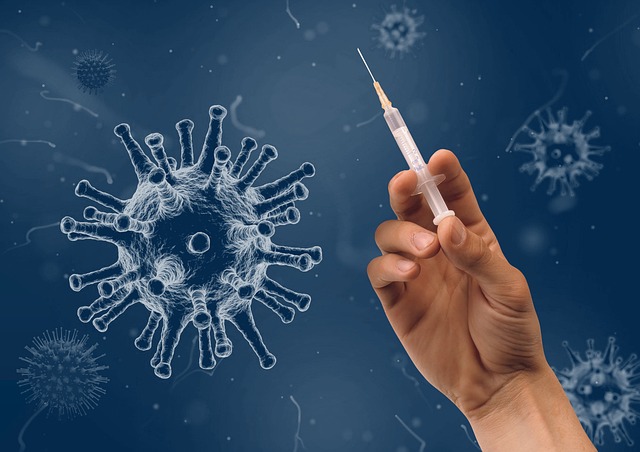The week before the military operations, the country had experienced a recent surge in COVID-19 cases. Health aid arrives in Poland tomorrow, but safe access to distribute it is lacking.
The World Health Organization confirmed this Wednesday that the first shipment of medical assistance for Ukraine will arrive in Poland tomorrow. The shipment includes 36 metric tons of supplies for trauma care and emergency surgery that will serve 1,000 patients. The rest of the health supplies will be used to meet the needs of 150,000 people.
At a press conference in Geneva on the evolution of COVID-19 , the director general of the UN agency, Dr. Tedros Adhanom Ghebreyesus, indicated that before the start of the offensive in Ukraine the Organization was able to distribute emergency supplies to 23 hospitals, although he acknowledged that they currently do not have access to supplies previously stored in Kiev.
“ There is an urgent need to establish a corridor to ensure that humanitarian workers and supplies have safe and continuous access to reach people in need,” he requested.

© UNICEF/Oleksandr Brynza. Babies are cared for in a makeshift perinatal center, located in the basement of a health complex in Saltivka, a residential district in Kharkiv, Ukraine.
Lack of oxygen will not only affect COVID-19 patients
Tedros later explained that before the start of the offensive in Ukraine the country had experienced a recent increase in COVID-19 cases.
Following this information, he added that the low number of tests carried out since the beginning of the conflict last Thursday points to the possibility of a significant undetected transmission of the disease.
“Together with low vaccination coverage, this increases the risk of large numbers of people developing severe disease. “Critical oxygen shortages will impact the ability to treat patients with COVID-19 and many other diseases,” she warned.
At the same time, he indicated that at least three of Ukraine’s main oxygen supply plants have closed , and that they continue to look for ways to get oxygen from neighboring countries and transport it safely to where it is needed.
Dr. Mike Ryan, emergency director of the Organization, complemented the information and explained that last week about 2,000 people needed oxygen for causes related to the coronavirus and that this number will increase with surgical interventions or other medical causes.
“Oxygen doesn’t just save lives for COVID. Oxygen saves lives, period. You need it when you need it. You can’t wait until tomorrow to have oxygen. You can’t wait until next week. You cannot be put on a waiting list. Oxygen saves your life now and when you need it, you need it. Ukraine needs it,” she detailed.
Both Tedros and Ryan pointed out the possibility that large population movements contribute to an increase in the transmission of the disease, a circumstance that will likely increase pressure on the health systems of nations neighboring Ukraine.
“Any time you disrupt a society in this way and put millions of people on the move, infectious diseases take advantage of it. People are crowded together, stressed, they don’t eat, they don’t sleep well, they are very susceptible to suffering from an infection in the first place, and the disease is more likely to spread," he warned and indicated the need to expand vaccination of people. who leave Ukraine for other countries.
The latest figures from the UN Refugee Agency indicate that some 870,000 refugees have already left the country, and that number is expected to increase rapidly.
Attacks on staff or health centers cannot be allowed
Tedros then expressed his deep concern about reports indicating that there had been attacks on health facilities and workers.
“We have received several unconfirmed reports of attacks on hospitals and healthcare infrastructure, and one confirmed incident last week, in which a hospital was attacked with heavy weapons, killing four people and injuring ten, including six healthcare workers,” He detailed and explained that they are trying to verify other incidents.
Therefore, he recalled that any attack on health care represents a violation of international humanitarian law.
“The sanctity and neutrality of healthcare – including healthcare workers, patients, supplies, transportation and facilities – and the right to safe access to care, must be respected and protected,” it determined.

© UNICEF/UNIAN. On February 27, 2022, people cross the border from Ukraine to Poland.
Help pay for WHO response in Ukraine
To finance the response to the crisis, Tedros explained that the Organization has already allocated $5.2 million from its Emergency Contingency Fund and that the budgeted needs for the next quarter amount to $45 million within the country and 12, 5 million for the care of refugees in neighboring nations.
Likewise, he explained that anyone can contribute to the response by accessing the WHO Foundation website and clicking the “donate” option.
















